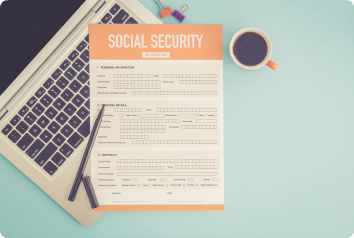 If you have a child in foster care, he or she might qualify for benefits from the Social Security Administration (SSA). The SSA oversees different benefits programs. The Congressional Research Service (CRS) reports that about 24,000 of the 400,000 children in foster care on any given day receive some form of Social Security benefits. That is about 6% of foster children.
If you have a child in foster care, he or she might qualify for benefits from the Social Security Administration (SSA). The SSA oversees different benefits programs. The Congressional Research Service (CRS) reports that about 24,000 of the 400,000 children in foster care on any given day receive some form of Social Security benefits. That is about 6% of foster children.
In most cases, federal regulations require that the SSA assign a representative payee, which is an individual, government entity, or organization, to manage the Social Security payments received by children, including those who are in foster care.
Different Kinds of Social Security Benefits a Child Can Receive
There are different kinds of Social Security benefits that a child might receive. A child can only receive one kind of benefit from the SSA at any given time.
Here are some of the ways that a child might be eligible to receive benefits from the SSA.
- Supplemental Security Income (SSI) – To receive SSI, the child must have a disability. The disability must meet the medical criteria established for such a condition, and the child must meet specific income and resource requirements.
- Survivors’ Benefits – If the child in foster care has a biological parent who has died, then he or she may be eligible to receive survivors’ benefits, which are based on the work history of the deceased parent. There is a maximum family payout, so the available funds are divided among the decedent’s surviving minor children and eligible spouse, if applicable.
- Auxiliary Benefits – If the child has a biological parent receiving Social Security disability benefits or Social Security retirement benefits, then he or she might be eligible to receive auxiliary benefits. The children of the beneficiary can receive up to half of the parent’s benefit amount. However, there is a maximum allowable family payout, so that amount will be divided among dependents that are eligible for benefits.
Applying for Benefits
If a child’s biological parent is currently receiving benefits, contact the SSA and ask for the child to be added onto the account to receive auxiliary benefits. Foster parents can find out about the biological parent’s disability benefits if they know the parent’s Social Security number. If you do not know the number, you can call the SSA for other options, it may also be helpful to contact your case worker. For a child to receive survivors’ benefits, you will have to apply for them on behalf of the child.
You will need to take proof of the child’s identification, including a birth certificate, along with a copy of the parent’s death certificate and/or death notice. The SSA will tell you what supporting documents you must provide to prove the child is eligible for benefits on the parent’s account.
For SSI benefits, an application must be completed and supporting documentation that clearly indicate the child’s diagnosis, limitations and restrictions, and the expected outcome of his or her condition must be provided to support the claim. Documentation is the key to a successful claim for disability benefits from the SSA. The process can be started on the phone by calling 1-800-772-1213, by visiting SSA.gov, or by scheduling an appointment at your local SSA office and meeting with a representative face to face.
About the Author: This article was written by the Outreach Team at Disability Benefits Help. They provide information about disability benefits and the application process. To learn more, please visit their website at http://www.disability-benefits-help.org/ or by emailing them at [email protected].


